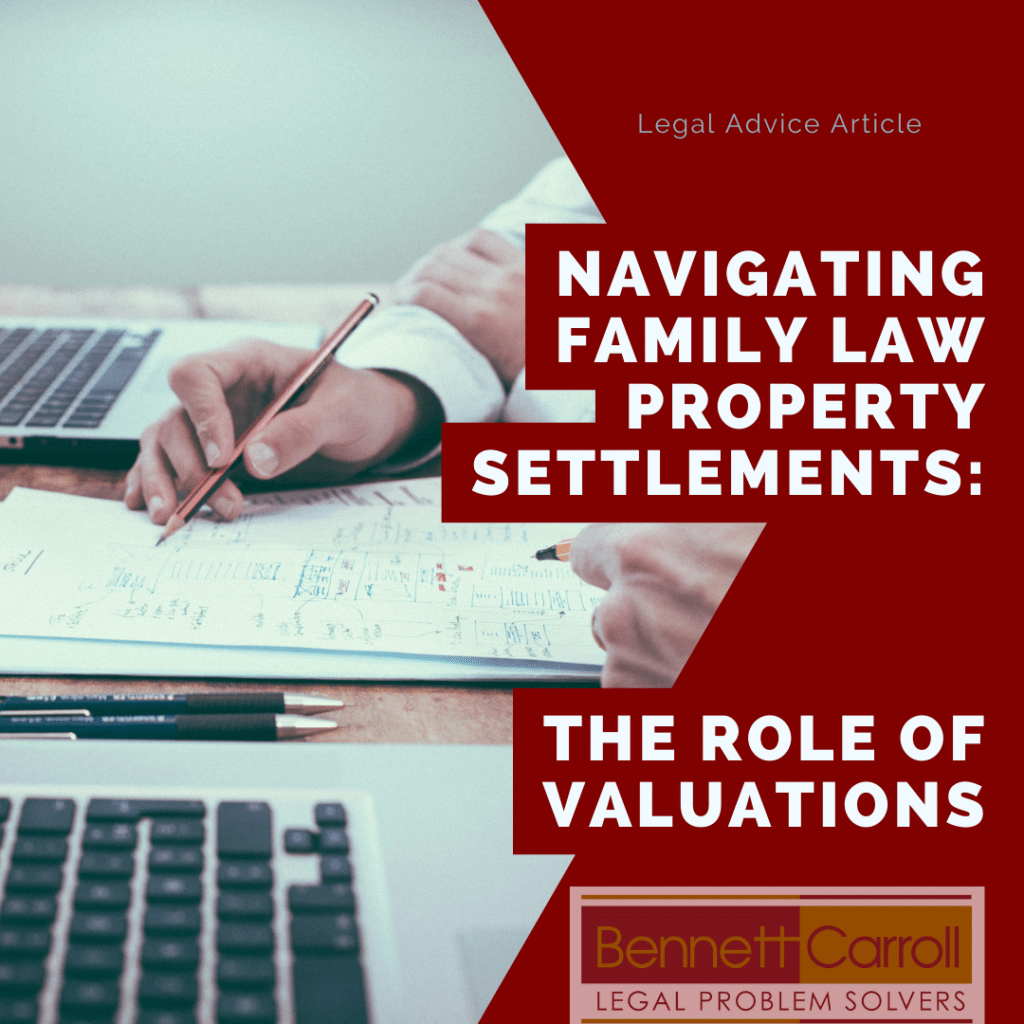Introduction:
In the intricate landscape of family law property settlements, the definition of “property” extends far beyond physical possessions. It encompasses a broad spectrum of financial assets, both individual and joint, acquired throughout a relationship. Understanding what constitutes an asset is pivotal in navigating the complexities of property settlements. This article delves into the significance of property valuations, shedding light on the role they play in ensuring a fair and equitable division of assets.
What is property?
In the realm of family law and property settlement, the term “property” encompasses all financial assets owned either individually or jointly by the parties involved.
Put simply, property includes anything of monetary value obtained during the relationship. Additionally, it may extend to assets acquired before the relationship commenced and, in certain situations, during the period of separation.
What is an asset?
‘Assets’ is the legal term used when talking about all the property that people own. This includes but is not limited to real estate, shares, motor vehicles, superannuation, furniture and personal possessions.
Do I have to get my property valued for family law property settlements in Australia?
In Australia, it is common for parties involved in family law property settlements to obtain property valuations. The valuation helps in determining the current market value of assets, which is crucial for a fair division of property. While it’s not mandatory to get a formal valuation, having one can provide a more accurate and objective assessment of the property’s worth.
If you and your former partner can agree on the property values, you may not need a formal valuation. However, if there is disagreement or if the assets are complex, seeking professional valuations is often recommended.
Keep in mind that the Family Law Act 1975 empowers the court to consider various factors, including the financial contributions of each party, non-financial contributions, and future needs, when making property settlement decisions. Obtaining accurate valuations can assist in presenting a clear picture of the asset pool during negotiations or court proceedings.
It is advisable to consult with a family lawyer to get guidance tailored to your specific situation.
What is involved in obtaining a property valuation for court purposes?
In the context of family law valuation, a sole expert witness (a certified property valuer registered with the Australian Property Institute), will be tasked with appraising your asset/s. This professional is jointly appointed by both parties, ensuring impartiality, and delivers an unbiased, independent report.
The most common way to appoint a valuer is where one party nominates a panel of valuers (usually 3) for the other party to nominate their preferred valuer.
Once the valuer is appointed, both parties collaboratively instruct the valuer through a jointly prepared letter. The valuer performs an on-site property inspection, thoroughly assesses the property, and determines a fair and current market value.
The resulting detailed report provides the most accurate property value for settlement purposes without necessitating an actual sale. The court in determining the terms of your settlement and the amount you may be entitled to receive.
Conclusion:
In conclusion, the process of family law property settlements demands a nuanced approach to navigating the intricacies of asset division. While obtaining formal property valuations is not obligatory, it stands as a prudent measure for an objective evaluation of assets’ value. As the court considers a multitude of factors, professional valuations serve as indispensable tools in ensuring a transparent presentation of the asset pool during negotiations or legal proceedings.
For personalised guidance tailored to your specific situation, Bennett Carroll Solicitors is here to assist you. Our experienced legal professionals are experts in family law, offering expertise and support to guide you through the complexities of property settlements. Let us help you navigate the path to a fair and equitable resolution of your family law property matters.
Call us on 1300 334 566 or email info@bcglaw.com.au and safeguard your interests every step of the way- We are your legal problem solvers.








